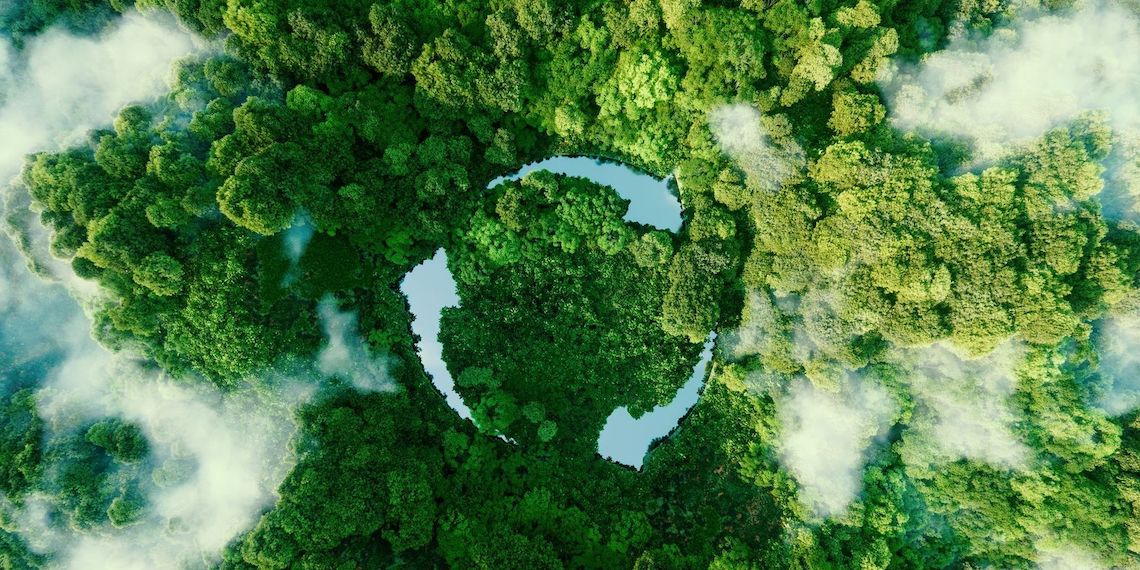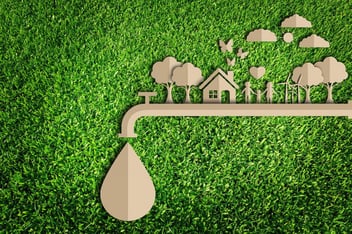Survey shows Australians opening up to alternative water sources

According to a national survey looking into Australians’ attitudes to alternative water supplies, eight out of ten believed it’s important to consider alternative water sources, such as purified recycled water (PRW), to improve Australia’s water security.
Led by Aurecon, the survey of more than 1400 people across states, demographics, ages and incomes also found that more than one in four were open to serious conversations about incorporating PRW into their future drinking water supply.
Water resilience expert Darren Romain said PRW could play a key role in boosting Australia’s water security as climate change accelerates.
“With irregular climate events predicted to intensify, the pressure for us to look beyond traditional water infrastructure is mounting,” he said.
“Cities and towns today tend to feel more comfortable with talking about PRW than a decade ago. During the survey process, we hardly came across entrenched negative sentiment towards PRW. It’s evident however, water education in Australia needs improvement.”
Carried out in collaboration with ORIMA, the survey found that experience of water scarcity, and exposure to PRW were important factors in communities accepting alternative sources of water.
"An observation during our survey is that respondents in Orange were much more positively disposed to PRW than the national average. We believe it was mainly due to the residents’ lived experience of prolonged drought and exposure to a successful stormwater harvesting scheme,” Romain said.
“It’s time we had serious conversations about alternative water sources, especially PRW, to better meet the community needs and ensure water resilience across Australia.”
Water Services Association of Australia Executive Director Adam Lovell said diversification of water sources is critical, which is why it’s so important to keep the option on the table.
“PRW has been in use globally since the 1960s, and is growing all the time, with dozens of schemes globally already supplying millions of people’s needs in the US, Europe, Africa, Asia and Australia,” he said.
“While there is no one-size-fits-all approach, it is vital we understand all our options, without having any unduly dismissed.”
Literacy lineage
Discussing the shift in public perception around PRW, Romain said the discourse around alternatives has progressed in the past 10 years, mostly because of a need for change.
“With the floods and the droughts that have happened in recent years, more people have realised that their water supply isn’t 100% guaranteed under all conditions, and that for water security, alternatives are going to be required in many cases,” he said.
“But we’ve also found that people that have exposure to droughts and floods are more likely to understand that there needs to be a solution to these issues. If people aren’t aware of the issue, they are less eager to talk about alternatives. It’s a bit of a ‘if it ain’t broke, don’t fix it’ attitude.
“Even if water planners are telling the community that their supplies are on the edge, if they haven't had water restrictions that impact their quality of life, they are less likely to comprehend the material impacts that water shortage would have on them.”
Romain said water literacy levels come into play in a big way when exploring alternatives with communities.
“There is not really a place in Australia that is untouched by the need for alternative water supplies, either because of climate change or growth in populations, or competing demands with industry,” he said.
“We found that water literacy was highly correlated with acceptance of exploring alternatives and also experience with alternative water sources, including PRW. If they haven’t experienced it, it's a bit of an unknown.”
Lovell said the survey, along with community feedback from recent water plans, has made it clear there needs to be more conversations about alternative water sources.
“Many places have undertaken effective education and community engagement activities that led to them adopting purified recycled water as part of safe and climate-resilient water supplies,” he said.
Time to educate
During the Millennium Drought, alternatives like PRW and desalination got a lot of exposure, but many options were still quite novel at the time, Romain said. Communities are now much more familiar with these options that they once were.
“During the Millennium Drought, recycled water was only just coming into play. There was a lot of pushback against all of the options being explored. What we see now is that there is less pushback against all of the alternative options,” he said.
“In Perth, they have PRW in place and they have done a big education program. Perth took the time they needed to educate the community properly.
“People need enough time to ingest information. You need a prolonged period of time to provide this information consistently for people to actually take it in. The work done in Perth is a great example of how that should look.”
University of Sydney Professor Stuart Khan said there is also a need for better collaboration among the water industry, communities and government to improve Australia’s opinion of alternatives like PRW.
“PRW could provide reliable, cost-competitive, climate resilient drinking water supplies to Australian communities,” he said.
“Its limited implementation has been largely linked to the perception that the public do not support its use, rather than the limitation of science or technical expertise. PRW needs more attention if we strive for greater resilience to droughts, bushfires and floods.”
And what does success look like? Romain said it’s a win if PRW remains part of the conversation moving forward.
“If a community decides the economics aren’t right for PRW, that’s fine. But if it is the right option, or an option that could provide an array of extra benefits, it will be important for them to have the chance to select it,” he said.



